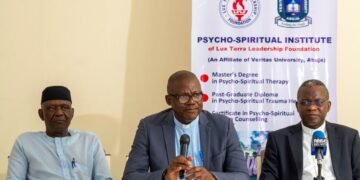By Charles Igwe
During an audience on Thursday morning with leaders of various ecclesial movements and associations, Pope Francis highlighted the necessity of a “spiritual conversion” to achieve lasting results from the synodal process.
“My hope,” the Pope stated, “is that following this Synod, synodality may endure as a permanent mode of working within the Church, at all levels, permeating the hearts of all, pastors and faithful alike, until it becomes a shared ‘ecclesial style.’ However, achieving this demands that a change must occur within each of us, a true ‘conversion’.”
He reminded the audience that Paul VI was the first to recognize the necessity of synodality in the Latin Church, noting that while the Eastern Church had preserved this practice, the Latin Church had lost it.
Pope Francis emphasized that the most crucial aspect of the Synod on Synodality is not the discussion of specific topics but embarking on a synodal journey at parish, diocesan, and global levels. The second General Assembly of this synodal process is scheduled for October in the Vatican, with the Pope planning to publish his conclusions in the spring of 2025.
“The most important aspect of this Synod on Synodality is not the discussion of specific topics,” he reiterated. “No, the most important aspect is to embark on a synodal journey at the parish, diocesan, and global levels.”
The Pope reiterated that the Holy Spirit is the protagonist of the synodal process and stressed the need to overcome divisions.
“Let us beware of the temptation of closed circles! These are ‘enclosures’ in which we all risk imprisonment. Synodality instead asks us to look beyond the barriers with magnanimity, to see the presence of God and his actions even in people we do not know, in new pastoral approaches, in uncharted mission territories. It asks us to let ourselves be moved, even ‘hurt,’ by the voice, the experience, and suffering of others: of our fellow believers and all those around us. Open, with an open heart.”
Pope Francis also addressed ecclesial movements specifically, stating, “Ecclesial movements are meant for service, not for self-interest. It is sad when people identify with a particular movement as if it were something superior. Church movements should serve the Church; they are not a message in themselves. They exist to serve.”














































